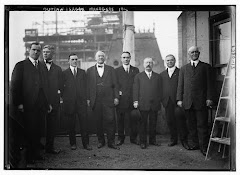 Reviewer: Spudbabe
Reviewer: SpudbabeRating: 2.5 Pierogies
Review: Salman Rushdie’s The Enchantress of Florence takes place in sixteenth century India and Florence, Italy. It is the tale of a young man named Uccello of Florence (later changed to Mogor dell’Amore) who has arrived to tell a story to the Mughal of India that will either bring him fortune or cost him his life. He represents himself as the ambassador of Queen Elizabeth I. The Emperor Akbar is skeptical, but is drawn into the stranger’s captivating story of Qara Koz, the enchantress of Florence, who he claims is his mother.
I have never read any Salman Rushdie before, but I always felt like I should. Instead of starting with the famous and controversial Satanic Verses, I chose the novel with sorcery and magic! I think I made a mistake. I was very encouraged when I began because I hadn’t read such beautiful prose in a long time. Rushdie can certainly write. But then I got bored and confused by the plot. He has a lot going on here. He is mingling history with fiction, magic, and romance. But it was really a long love letter to story tellers. Story tellers are the creators of our world you know. Their work is dangerous and invaluable. He gives the highest amount of reverence to this skill and so should we. I’m willing to go there with you Salman, but the story better be good.
There are three separate stories that are intertwined. I’m using the word "intertwined" here solely because it’s prettier than "mashed", "jammed", or "forced". The ideas floating around in these stories would have been great if given the proper attention. For example, the theme of art becoming reality, and life transforming into art, could have been beautiful and interesting. In fact, Rushdie pulled it off at times. I loved the conclusion of part I. The painter Dashwanth became so enchanted with his masterpiece of the fantastic beauty, Qara Köz, that he entered the painting to be with her and was never seen again. It was unique, beautifully written, and romantic. Everything I thought this book would be. But then Part II started and I became bored again.
 A constant theme throughout these stories is that women have only the power of enchantment at their disposal. This wouldn’t have bothered me given the historical context—beauty and sex probably were a woman’s only real power in the 16th century. It only bothered me because it was uninteresting, and I couldn’t shake the feeling that his divorce from former model Padma Lakshmi a year earlier was a major influence. Padma is significantly younger, gorgeous, and makes a living by eating delicious food and crushing dreams on Top Chef. An enchantress? I think so.
A constant theme throughout these stories is that women have only the power of enchantment at their disposal. This wouldn’t have bothered me given the historical context—beauty and sex probably were a woman’s only real power in the 16th century. It only bothered me because it was uninteresting, and I couldn’t shake the feeling that his divorce from former model Padma Lakshmi a year earlier was a major influence. Padma is significantly younger, gorgeous, and makes a living by eating delicious food and crushing dreams on Top Chef. An enchantress? I think so. Rushdie has said this was his most researched novel. It shows and is very impressive in certain ways. But I think he should have spent less time forcing his research into the story, and more time creating an interesting plot. Great ideas, poor execution. So now I’m torn on whether or not to read more of his work. On one hand his writing is striking and there were flashes of brilliance scattered throughout. But on the other hand, the novel was predominantly boring and also had flashes of self-indulgence. I wouldn’t recommend it to anyone, but I also wouldn’t attempt to dissuade anyone from reading it. Basically, my entire reading experience went something like this:
Wow, this is beautiful. Ok, I’m getting bored. I’m gonna stop reading now. Wait! BRILLIANCE! Alright, now we’re getting somewhere! Damn, I’m getting bored and confused again. I’m stopping for real this time. BRILLIANCE! Ok Salman! I’m back on board and ready for this ending! That was the end? Sigh.
So if you are a patient and active reader, this might be worth it to you for those few really wonderful parts. If you are a reader who prefers pure entertainment and finds sentences that go on for an entire page to be tedious, this might not be the one for you.
